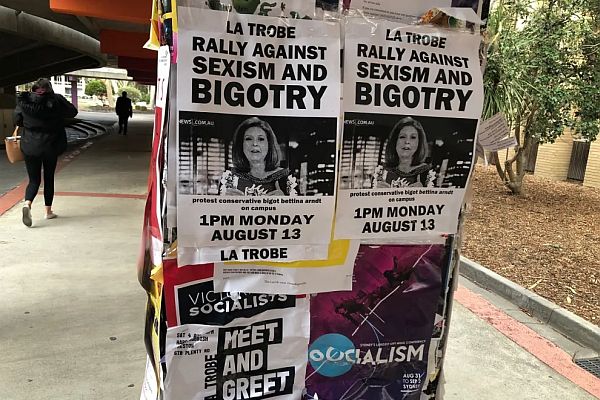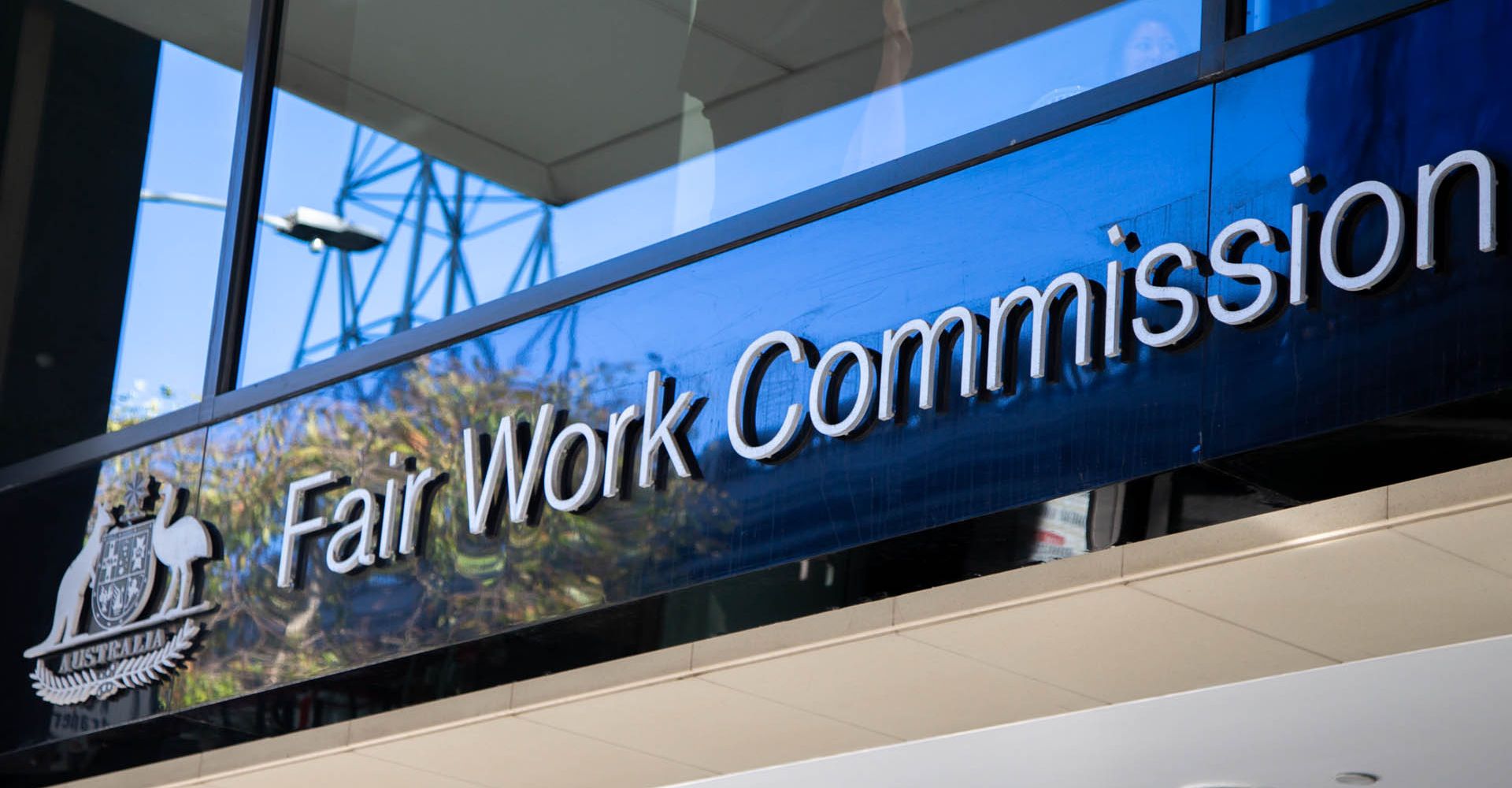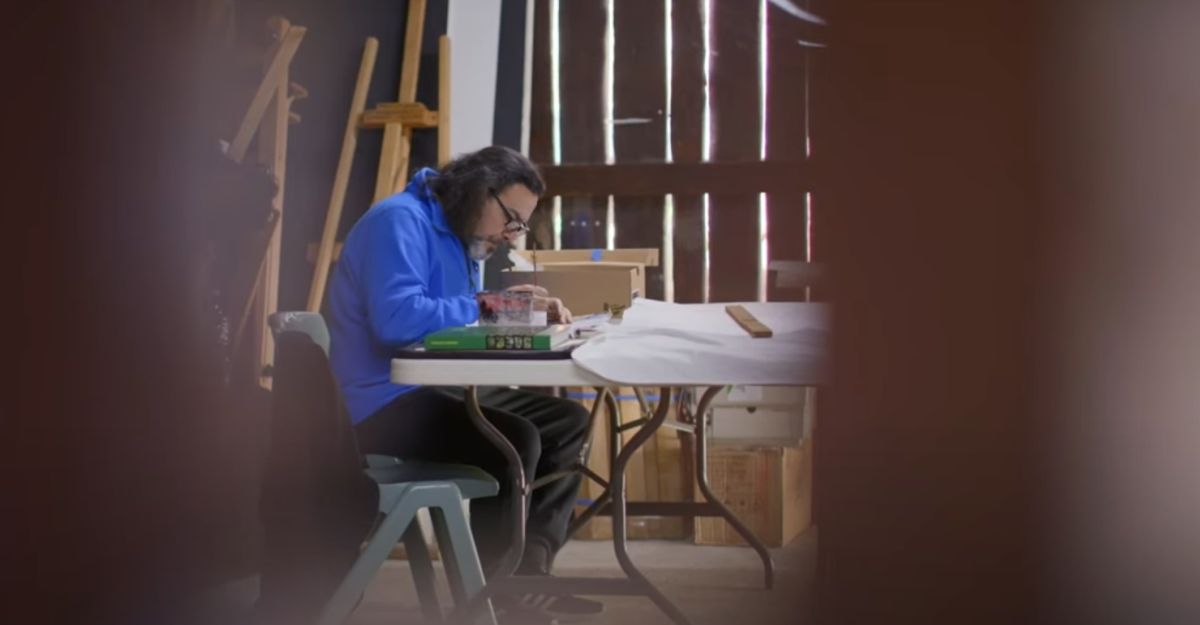In April of this year, the French review into freedom of speech at Australian universities found that there was in fact no such crisis, despite months of conservative hand-wringing to the contrary. Universities Australia took the review as a victory, releasing a statement that explained their support of the findings of the review, and the Vice-Chancellors of all thirty-nine member universities confirmed their commitment to academic freedom and freedom of expression.
Three months later, the vice-chancellor of one those universities expressed similar sentiments. The investigation into the protest at the University of Sydney against the talk by Bettina Arndt that had sparked the French Review had concluded, with all but one of the students involved let off with relatively minor consequences, if they were found to be guilty of misconduct at all. At the conclusion of the investigation, University of Sydney Acting Registrar Peter McCallum signed a statement that outlined the process of investigation, specifying that the University supported freedom of speech and that ‘any findings made in this case are not in any way intended to discourage free speech or protest.’ This statement, and the results of the investigation, were interpreted as a distinctive win for the liberal Left in the campus free-speech debate. The Sydney Morning Herald ran a story with the headline ‘Students Given Green Light to Protest’ and Vice-Chancellor Michael Spence explained the incident as ‘a little student protest’ and ‘a slightly dull talk given uninterrupted.’
As the organiser of the protest, and as the only student to have received a severe penalty as the result of the investigation, I received an email and a phone call on the day the statement was made publicly available. The email informed me that I had received a suspended suspension. Due to a prior offence, this would result in a suspension from my studies for a semester in 2020. The phone call was to alert me to the fact that Arndt would be informed of the findings of the investigation at midday, and that I should prepare myself for a distinct increase in media attention and discussion. It was the week before exams.
This was not an especially unusual situation for me, nor for the other student activists involved. The Code of Conduct, the Student Discipline Rule and the investigative processes that are set in motion after a student is suspected of breaking either are familiar enemies to left-wing students at the University of Sydney. Incredibly broad in both language and application, the Code and Rule are used in tandem to define a number of behaviours that could potentially constitute an act of misconduct, from failing to ‘treat all employees, members of the public and other students with respect, dignity, impartiality, courtesy and sensitivity’ to ‘prejudicing the good order and government of the University’ and ‘prejudicing the good name or academic standing of the University.’ Any number of behaviours can be treated as a potential instance of misconduct: from the publication of politically controversial material to a campus protest.
In 2018, after an O-Week protest against the pro-life student group Life Choice, a complaint was lodged against myself and a number of other students. Four months later, unsatisfied with the time the University was taking to investigate the allegations, NSW Labor MLP Greg Donnelly raised them in state parliament, revealing that he had been lobbying the Vice Chancellor, and later the University Senate, for a severe penalty to be imposed. In May of the same year, another complaint was submitted, this time by the Australian Union of Jewish Students (AUJS), about the women’s and queer editions of Honi Soit for content in both that was explicitly pro-Palestine. In both cases, I and other student activists endured public, lengthy investigations that ultimately fell short of finding us guilty of misconduct.
Complaints levelled against left-wing students are often vexatious or politically motivated, and complainants are unable to speak about the process either during the process or afterwards, due to strict requirements of confidentiality. Honi Soit reported in March that the Student Affairs Unit had seen the number of complaints rise from fifty-six in 2016 to 224 in 2017. Although this was partially attributed to the centralisation of University administrative departments in 2016, it also correlates with an anecdotal increase in political and vexatious complaints.
In the same Honi Soit article, a number of students gave anonymous accounts of their experiences of the misconduct system. All attested to the stress and strain the experience put on their mental health and wellbeing, and all hinted at the lack of procedural fairness. In a system that is so easily manipulated and exploited by external figures and organisations, the question of procedural fairness is an interesting one. Can an investigation really remain unbiased when its details are splashed across the pages of most national newspapers?
Such incursions on left-wing student protest and political speech are not new. Students protesting the Vietnam War in 1968 risked losing their commonwealth scholarships, and Honi Soit has narrowly avoided a number of threats to its publication and independence in the course of its ninety-year history. Conservative interventions into left-wing speech, both from within and outside the University of Sydney, are as much a part of its cultural history as the student movements it has continuously sought to suppress. As the political and academic freedom of the staff and students at the University face new threats, it is important to question the veracity of statements such as that given recently by the Acting Registrar. Any encouragement of freedom of speech and protest on campus can hardly be considered sincere when the organiser of the protest in question is facing a suspension, with the threat of another looming over any future political action.
The presence of this system and its capacity to be used as a political tool at the University of Sydney (and elsewhere in Australia) is a natural suppressant of left-wing speech. Its unpredictable and often punitive nature leaves left-wing students uncertain as to what political behaviours are considered acceptable or unacceptable by the university, and to what extent unacceptable behaviours may constitute misconduct. Students must walk an increasingly thin line of acceptable left-wing speech, or be prepared to risk their education in expressing their political views. Surely this is a greater, more meaningful threat to free speech than that posed by a little student protest of ‘a slightly dull talk, given uninterrupted’?



